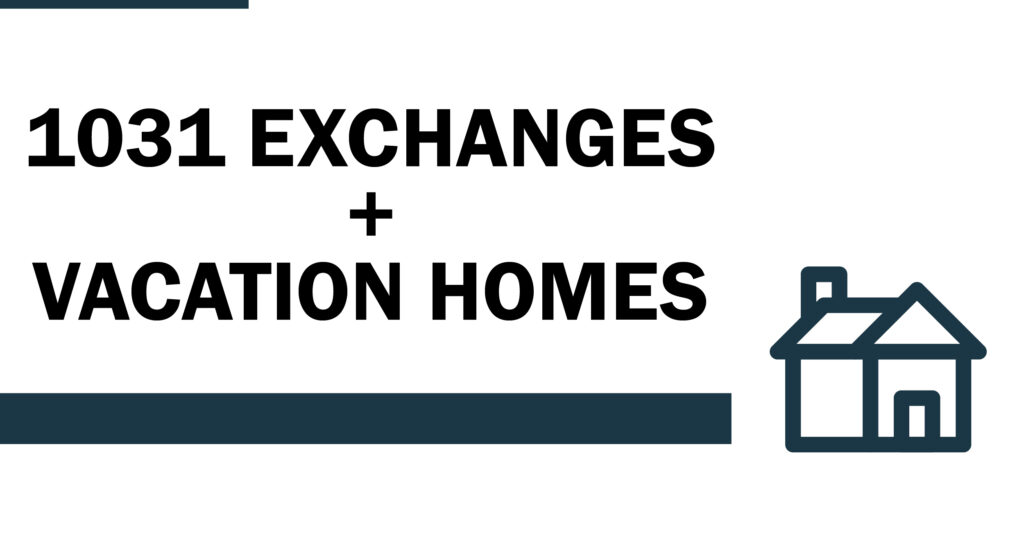
One of the most common questions asked is whether or a not a vacation property qualifies for a 1031 exchange. There are three basic rules for including a vacation home in a 1031 exchange that were introduced by the IRS in 2008
For a vacation home to qualify as relinquished property in a 1031 exchange, first the vacation home must have been held by the taxpayer for a minimum of 24 months immediately preceding the exchange. Second, the vacation home must have been rented at fair market value for at least 14 days in each of the 12-month periods. Third, the property owner cannot have used the vacation home personally for more than 14 days or 10% of the days the home was rented out (whichever is greater) within both 12-month periods.
The rules for a vacation home as a replacement property are the same as above. The property must be held for a minimum of 24 months after the close of the exchange; the property must be rented out at fair market value for at least 14 days in each 12-month period; and the taxpayer cannot use the vacation home for personal use more than 14 days or 10% of the days it was rented out (whichever is greater) in each 12-month period.
There is one small exception to the days a taxpayer can use both the relinquished and replacement properties, which states that the taxpayer can use the home for personal use above and beyond the 14 days or 10%, IF the overage was used to complete improvements or maintenance. If a taxpayer plans to utilize this exception, they should keep all receipts of maintenance or improvements completed during the duration of their stay, to ensure they comply with the regulations upon scrutinization.
Following the rules above, a vacation property can be eligibly property for a 1031 exchange. It is strongly recommended that a taxpayer contemplating a 1031 exchange involving vacation property discuss the transaction with their tax and legal counsel before doing so.
